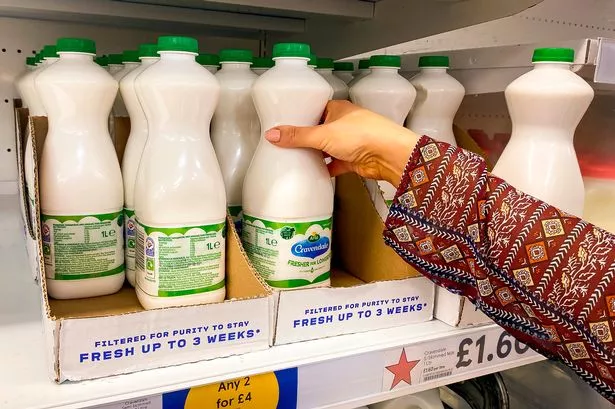Arla Foods, a leading dairy producer and owner of the widely recognized Danish butter brand Lurpak, has recently faced scrutiny regarding the use of the Bovaer additive for cows. This additive, designed to reduce methane emissions from cattle, has raised concerns among consumers and advocacy groups about potential health risks, including claims that milk produced from treated cows might increase cancer risks. As public debates heat up around food safety and environmental sustainability, Arla Foods is taking proactive measures to reassure customers about the quality and safety of its products.
The Bovaer additive, developed to combat greenhouse gas emissions from dairy farming, aims to significantly lower methane output from cows. While the environmental benefits of such an additive are evident, concerns have been raised about its long-term effects on human health, particularly in relation to the consumption of milk from these treated cows. Such worries are particularly poignant given the current climate around food safety, where consumers are increasingly aware and skeptical about agricultural practices and additives used in food production.
In response to the rising fears surrounding the Bovaer additive, Arla Foods has launched a robust communication strategy to address public concerns. The company emphasizes that the use of Bovaer is under strict regulation and oversight, asserting that it has been approved by food safety authorities, including the European Food Safety Authority (EFSA). Arla Foods aims to educate consumers about the comprehensive testing and vetting process such additives undergo before being deemed safe for use, providing a clearer picture of the safety protocols in place.
Moreover, Arla Foods taps into the greater narrative of sustainable agriculture, positioning the Bovaer additive as a step toward reducing the carbon footprint of dairy farming. By highlighting its commitment to environmentally conscious practices and emissions reduction, the company seeks to reassure consumers that its innovations not only protect the planet but also maintain the quality and safety of its products. The messaging is designed to align consumer values with the company’s mission, thereby fostering trust and loyalty.
The situation at hand reflects a broader trend in the food industry where transparency and sustainability are paramount. Consumers are increasingly looking for brands that align with their values, particularly concerning health and environmental issues. Arla Foods must navigate this complex landscape, balancing the need to innovate for sustainability with the necessity to reassure consumers about the safety of their products—especially in a market where rumors and misinformation can quickly spread.
Ultimately, Arla Foods’ response to fears about the Bovaer additive showcases the challenges and opportunities facing modern food producers. By tackling concerns head-on and offering a transparent view of its practices, Arla aims to cultivate consumer trust while contributing to a more sustainable future for dairy farming. Moving forward, the company must continue to engage with consumers, addressing questions and concerns transparently and adapting to the evolving expectations of the market.














